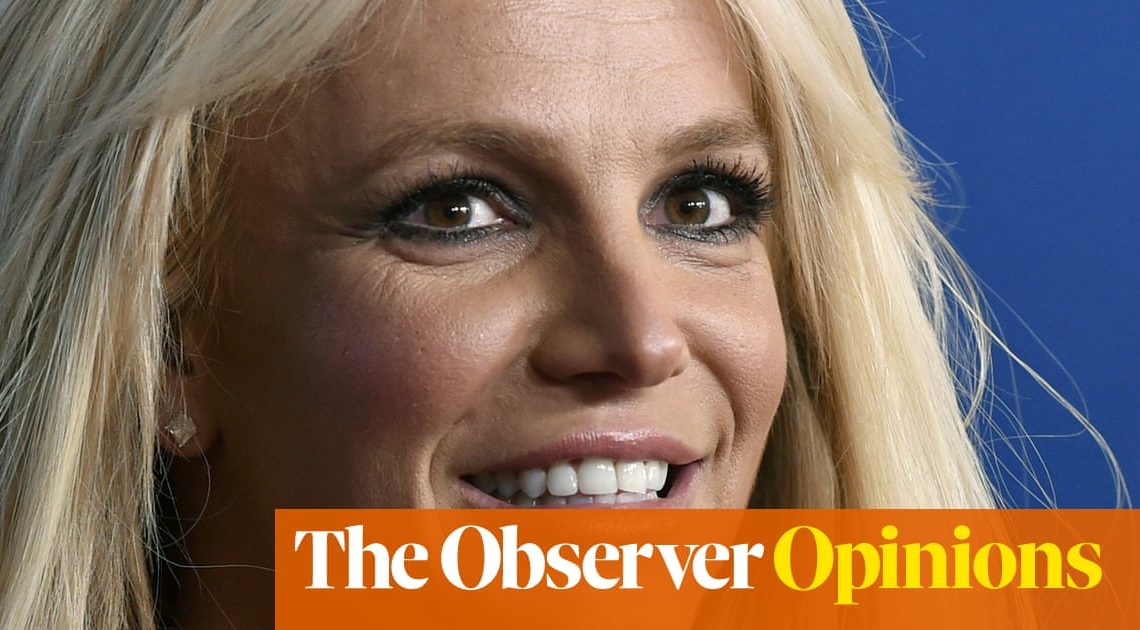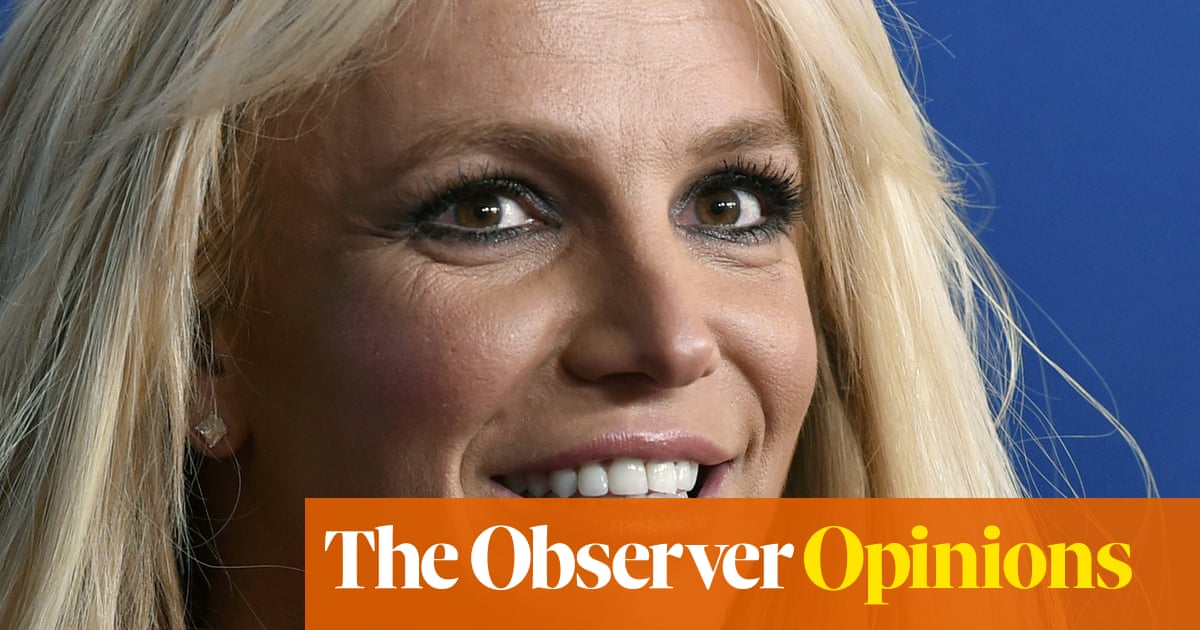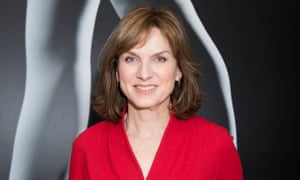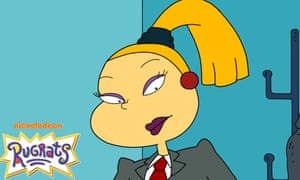
Britney Spears and a civilised response to her mental health | Rebecca Nicholson
April 7, 2019The support of fans and the restraint of paparazzi show how attitudes to celebrity distress have changed

When Britney Spears shaved her head and took an umbrella to a paparazzos car in 2007, the events of a night turned into a circus-like spectacle gobbled up by a bloodthirsty audience. When, a few months later, she was taken into psychiatric care, photographers jostled and pushed around the ambulance, trying to snatch an image of the singer, in obvious distress, adding the flashes of their cameras to the flashing lights of the emergency vehicle. An episode of South Park that was broadcast in 2008, Britneys New Look, offered a surprisingly furious satirical riposte: famous young women become sacrifices for a baying crowd, who nitpick at every flaw, literally hounding their target to death.
What a difference a decade can make. Last week, Spears posted a quote on her Instagram page Fall in love with taking care of yourself, mind, body, spirit along with a caption that read: We all need to take time for a little me time, followed by a smiley face. It was timed to coincide with reports that she had checked herself into a mental health facility for 30 days. This news has been unaccompanied by frenzy or hysteria. Instead, though widely reported and unpicked, it has been treated with something approaching respect and certainly a wider understanding of the situation. The messages of love and support posted by fans seem supportive and empathetic; the tabloid reports relatively muted and factual.
In the Asif Kapadia documentary about Amy Winehouse, one of the moments that remained with me was how much the singers struggles had become a punchline, an excuse for a gag, even a fancy dress costume. To watch people wisecracking about her troubles, through the awful lens of hindsight, is terrible and tragic. Perhaps its too generous, but I find it hard to imagine that same sort of blase mockery happening now.
This is an age in which openness about mental health is much discussed and debated. As with anything, much of it depends on situation and circumstance. The rapper Big Sean recently spoke about his experience of anxiety and depression and how it led him to find a good therapist; it was reported with care and he was widely admired for his openness.
The difference between how Spears has been discussed this past week, compared to the gruesome running commentary of 2008, is striking. Suffering is less a spectacle, more something to be understood. It is a tentative sign that the conversation is, at last, maturing.
Why is our pay still tied to the kitchen sink? Ask Fiona Bruce

As this years gender pay gap figures start to appear, early findings indicate that eight out of 10 companies in Britain still pay male employees more than female employees. Yet it is depressingly common to see people on Facebook saying that the gender pay gap is a myth, cooked up by feminists, to… well, I cant quite understand why people would cook that up, but thats what we get from spending too much time in the kitchen where we belong, am I right, ladies?
I understand that there are myriad reasons for the gender pay gap and closing it will involve a complete overhaul of work culture, from more flexible hours to encouraging paternity leave to making a concerted effort to hire women in senior roles. BBC presenter Fiona Bruce told Vogue that after requesting a desultory pay rise early in her career, she was asked by her boss: Do you really need it? What does your boyfriend do? You live with him, dont you? Doesnt he pay for most things? It may sound absurd, but it is woefully optimistic to assume those attitudes have died out.
At a hearing in Washington DC, Michelle Williams spoke about being paid $1,000 to do reshoots on the ironically titled All the Money in the World, for which her co-star, Mark Wahlberg, received $1.5m. Guess what, no one cared, she said. It simply reinforced my life-learned belief that equality is not an inalienable right and that women would always be working just as hard for less money while shouldering more responsibility at home. Where we are cooking up pay gap myths, no doubt.
Rugrats meme makes my day

At the best of times, I find memes to be more ageing than the harshest of lights in a grotty pub bathroom. If the news cycle seems dizzyingly rapid, then the meme cycle is a nauseating acceleration, operating at hyperspeed. Often, I see memes sending up a story before Ive heard the story itself. I have had to start replying to my most meme-loving friend with: Nanna doesnt get it, so that he will take pity and follow up with a detailed explanation.
Last week, however, memes brought Charlotte Pickles back into my orbit and I am pleased to announce that, at last, I get it. Charlotte was the low-key highlight of the 90s cartoon Rugrats, the hard-working corporate boss mother of the demonic Angelica. Charlottes husband looked like a guitarist for the National and she was so busy getting stuff done that she barely had time to breathe, though she did have time to bark inspirational quotes into her mobile phone such as: If Angelica is ever going to make it in a male-dominated power structure, shes gotta eat, breathe and sweat self-esteem.
I am thrilled that she has returned to the cultural spotlight she so richly deserves.
Rebecca Nicholson is an Observer columnist
Read more: http://www.theguardian.com/us

